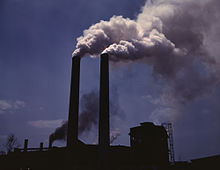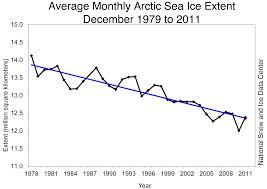Month: December 2013
Going for Broke at the Climate Casino
The new Nordhaus book is good as far as it goes. But its analysis is muddled in crucial respects.
I finally had a chance to read Nordhaus’s new book, The Climate Casino, on a long flight. There are some goods lessons in the book. The book makes the case for serious mitigation, even rhough Nordhaus takes a fairly optimistic view about adaptation. Nordhaus also tells us that “it would be relatively inexpensive to slow …
Continue reading “Going for Broke at the Climate Casino”
CONTINUE READINGWith Utility Power Purchases, Does the Environment Matter?
When does the approval of a contract trigger environmental review?
If an electric utility asks regulators to approve a contract to purchase power from someone else’s power plant, should the regulators consider the environmental implications before saying yes or no? Of course they should. But let me ask the question again, using a bit of California legalese: Does a decision by the California Public Utilities …
Continue reading “With Utility Power Purchases, Does the Environment Matter?”
CONTINUE READINGWhy Pollution Regulations Aren’t Taxes
Opponents of environmental regulations love to call them hidden taxes. But constant repetition doesn’t make this idea true.
If you’ve seen a statement that regulations are hidden taxes, that’s not too surprising. Googling “regulation hidden taxes” produces over three million hits. But in fact, pollution regulations and taxes are completely different. The reason is simple. A tax removes value from the private sector. Environmental regulations simultaneously remove value from one part of …
Continue reading “Why Pollution Regulations Aren’t Taxes”
CONTINUE READINGA Bad Hollywood Ending for Smart Growth — What’s the Sequel?
Judge rules the downtown plan for transit-oriented growth is fundamentally flawed
Smart growth advocates are lamenting a judge’s decision yesterday to toss out the environmental impact report (EIR) on Hollywood’s years-in-the-making plan for higher-density growth around the city’s subway stops. Hollywood is one of the few communities in California willing to increase growth around transit stops and along transit corridors, and the demand for housing and …
Continue reading “A Bad Hollywood Ending for Smart Growth — What’s the Sequel?”
CONTINUE READINGSkinning Cobras and Climbing Trees in Belgium
Trying to save energy in Europe and around the Mediterranean
Brussels is at least two cities in one: a modern European municipality rich in history and containing some spectacular gilded palaces, and a capital city. It is the seat of government for Belgium – a flag flies over the palace when the king is nearby – and the capital for the European Union. The governing …
Continue reading “Skinning Cobras and Climbing Trees in Belgium”
CONTINUE READINGA solar energy fight in Arizona
The rising political power of residential solar power
There’s a fight over renewable energy occurring in Arizona right now. The state’s largest public utility asked state regulators for permission to greatly increase the fees paid by homeowners who have solar power on their houses. The utility’s argument is that the increase in solar power produced by these houses is putting a burden on …
Continue reading “A solar energy fight in Arizona”
CONTINUE READINGWhy Did the Mono Lake Campaign Succeed?
What Makes for Successful Social Movements, Especially in Environmental Politics?
Environmentalists celebrate the campaign to save Mono Lake as one the iconic triumphs in US environmental history. As well they should. But why did it succeed? It’s a critical question not just for environmentalists, but for any scholar or member of social movements. In a previous post, I have suggested that the identity of the …
Continue reading “Why Did the Mono Lake Campaign Succeed?”
CONTINUE READINGConspiracy!
Even as conspiracy theories go, the
Some members of Congress — not to mention any number of bloggers — think climate change is a hoax. Most famously, Senator Inhofe has said: With all of the hysteria, all of the fear, all of the phony science, could it be that manmade global warming is the greatest hoax ever perpetrated on the American …
Continue reading “Conspiracy!”
CONTINUE READINGA Follow-up on the NYT’s Environmental Coverage
Environmental journalism in decline at the NYT
Last March, the New York Times killed its Green blog and disassembled its environment desk, distributing the staff into other units. Jayni noted the possible concern that this change might result in diminished resources for environmental coverage at the Times; she also noted the positive spin that some Times people put on the change, …
Continue reading “A Follow-up on the NYT’s Environmental Coverage”
CONTINUE READINGIs Climate Change a Bulldozer or Bullet Train?
How fast will climate change happen? Maybe faster than we expect, according to the National Academy of Sciences.
We’re in the early stages of climate change — just how much depending in large part on whether we control our emissions. But how quickly will this happen? Is it a bulldozer we can dodge or a bullet train that’s too fast to avoid? That makes a lot of difference in terms of our ability …
Continue reading “Is Climate Change a Bulldozer or Bullet Train?”
CONTINUE READING










